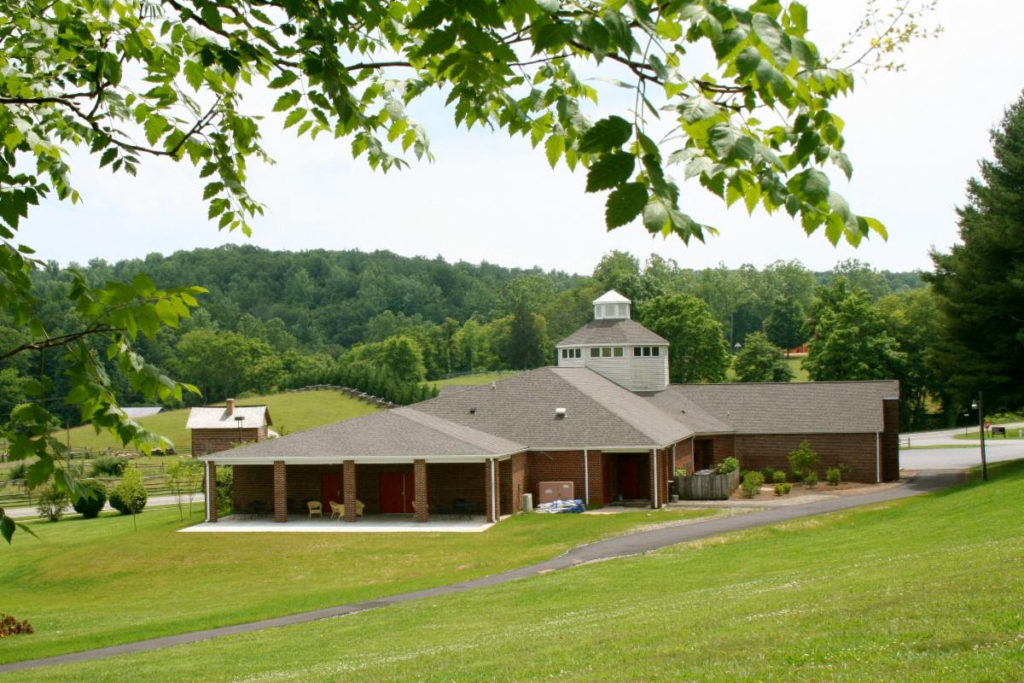FERRUM COLLEGE & BRIM TO PRESERVE ADAMS COLLECTION OF APPALACHIAN FOLKLORE WITH CIC GRANT

FERRUM, VA – Ferrum College has been named one of twenty-four Council of Independent College (CIC) institutions to participate in “Humanities Research for the Public Good” in 2021-22, a national initiative promoting student research and public engagement. This initiative focuses on showcasing library and museum collections held at private colleges and universities. Ferrum College will receive a grant of $10,000 to implement a year-long undergraduate research project in collaboration with the Blue Ridge Institute and Museum (BRIM) and the Franklin County Public Library.
“Independent colleges are stronger when they share their resources with their communities and so are their communities,” said CIC President Richard Ekman. “Those resources often include significant archival or library collections that can illuminate issues of real public importance.”
Ferrum’s project, titled “Preserving and Sharing Old and New Stories from the James Taylor Adams Collection and the Public,” will make more accessible the collection of Appalachian folklore and ballads organized by James Taylor Adams during the 1930s and 40s.
In the early 1930s, Adams, a writer from Wise County, Virginia, recognized the importance of preserving Appalachian folklore and ballads. He partnered with the Works Progress Administration (WPA) in 1936 to make carbon copies of local lore and planned for a book publication. After the WPA unexpectedly shut down in 1943, the book never happened. Adams died in 1954 and his papers were given to Clinch Valley College (now UVA’s College at Wise), where they sat in boxes, unorganized and abandoned, until Ferrum College researchers received permission to bring a copy to the College in the 1980s. The material, measured by archivists at twelve linear feet, was then organized in categories and stored in the archive at the BRIM. Bethany Worley, current director of the BRIM, participated in that work early in her career and now looks forward to making the collection more widely available to researchers and the public.
In the fall of 2021, the BRIM, with the help of several Ferrum College students, will begin work to digitize the Adams Collection, which will expand the BRIM website and improve public access to folktales and ballads from Southwestern Virginia. The students will learn about history and maintenance of records, including the skills needed to scan or retype fragile pages, catalog items, edit web pages, prepare for live storytelling workshops, and more.
“This project provides a wonderful experiential opportunity for our humanities students. It fits very well with our new minor in Public History and Museum Studies,” said Professor of English Tina Hanlon, who plans to work on this project during her sabbatical next year. (Explore Ferrum’s history program here.)
In 2022, the Franklin County Public Library will begin hosting public storytelling workshops to introduce locals to the Adams Collection material and teach them storytelling methods. Professor Emeritus of Theatre Arts Rex Stephenson will lead the workshops. He has used archived tales from the James Taylor Adams Collection to dramatize Appalachian folktales since the 1970s. The grant proposal describes the workshops as offering “live storytelling to link archive copies of folktales from Southwestern Virginia with popular dramatic adaptations that have been performed in this region for decades, and encourage the public to collect, preserve and share their own stories.”
The CIC’s grant selection process was extremely selective. Anne M. Valk, historian and executive director of the American Social History Project/Center for Media and Learning at the CUNY Graduate Center, leads the program.
“I was impressed by the good work that faculty and staff are already doing to support community engagement and humanities research,” said Valk. “So many independent colleges are committed to public-facing scholarship and exploring the hidden potential of their collections.”
Learn more about Appalachian folktales and literature by visiting the AppLit: Resources for Readers and Teachers of Appalachian Literature Facebook page, or the AppLit website.